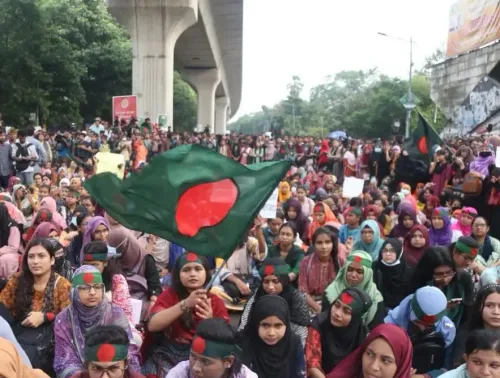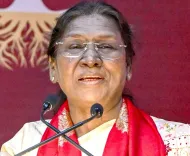WHO Issues Alert for New Mysterious Illness in Congo

Synopsis
Key Takeaways
- New illness in DRC's Equateur Province.
- 431 cases and 45 deaths reported as of February 15.
- Children under five among the first fatalities.
- Rapid disease progression noted.
- Potential causes being investigated include malaria and foodborne illnesses.
Kinshasa, Feb 19 (NationPress) A new, unidentified illness has emerged in the northwestern region of the Democratic Republic of the Congo (DRC), which is grappling with several public health and humanitarian crises, according to a report released by the World Health Organization (WHO) on Wednesday.
Two clusters of cases and fatalities linked to the unknown disease have been identified in two health zones within the DRC's Equateur Province, the WHO reported.
As of February 15, there have been 431 reported cases and 45 fatalities.
The first cluster was documented in January in Boloko Village, located in the Bolomba Health Zone. Initial inquiries traced the outbreak back to three community fatalities among children under the age of five, who showed symptoms including fever, headache, diarrhea, and fatigue, which subsequently escalated to hemorrhage.
Reports indicated that the children had ingested a bat carcass just prior to the appearance of their symptoms.
The second cluster was reported in February in Bomate Village, situated in the Basankusu Health Zone.
The report stated, "The outbreak, which has seen a rapid increase in cases within a matter of days, poses a significant public health threat," highlighting that the disease advances quickly, with nearly half of the fatalities occurring within 48 hours of symptom onset in the Basankusu Health Zone, and a remarkably high case fatality rate in the Bolomba Health Zone.
There have been no established epidemiological connections between the cases in the two affected health zones.
Potential causes being investigated include malaria, viral hemorrhagic fevers, food or waterborne illnesses, typhoid fever, and meningitis, while Ebola and Marburg viruses have been excluded based on testing, as reported by the WHO, according to Xinhua news agency.
In late 2024, the DRC's southwestern province of Kwango faced a similar "mysterious disease," which was later determined to be severe malaria exacerbated by malnutrition. A government report published in January 2025 detailed 2,774 cases and 77 deaths.
The worsening armed conflict in the DRC's North Kivu and South Kivu provinces has intensified an already critical humanitarian situation. There have been numerous reports of looting, assaults on aid workers, and roadblockades that have severely hindered relief efforts.
The WHO has called for urgent measures to secure humanitarian access, restore crucial infrastructure, and guarantee the delivery of medical and food assistance, emphasizing that improved public health surveillance is vital to avert further crises.








